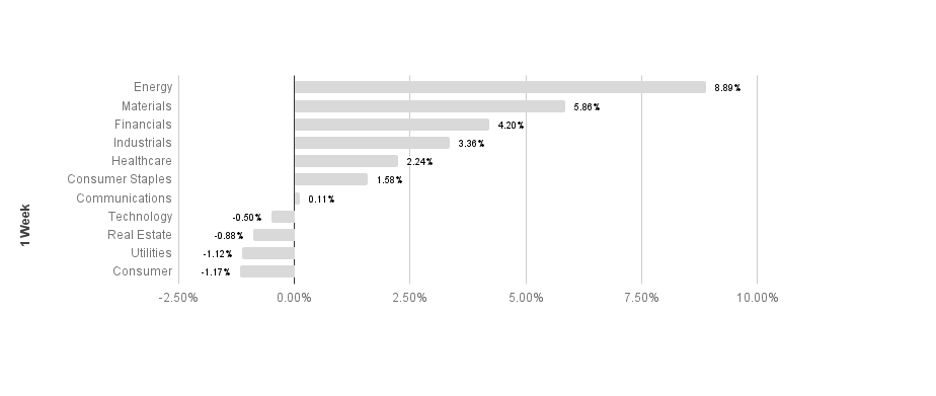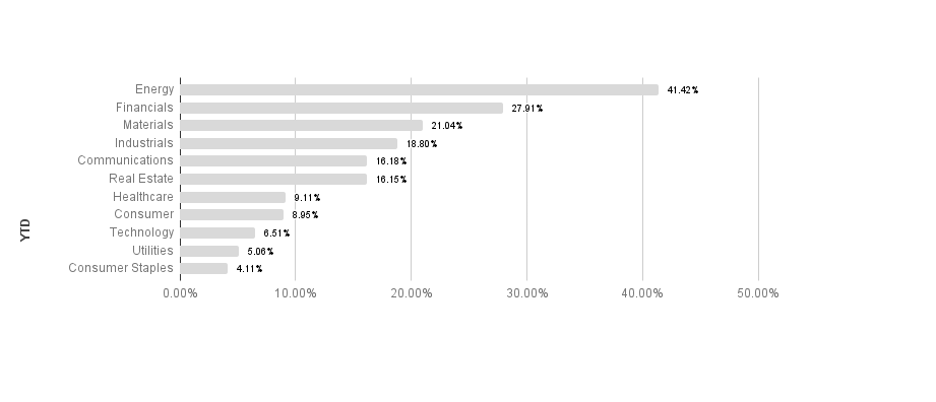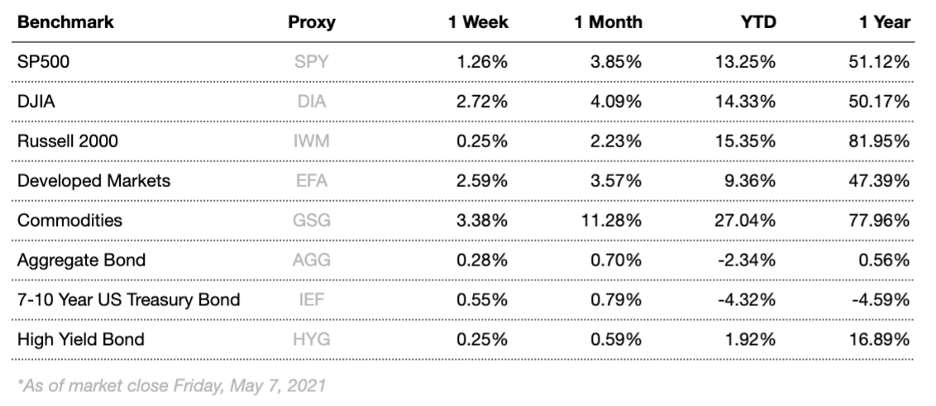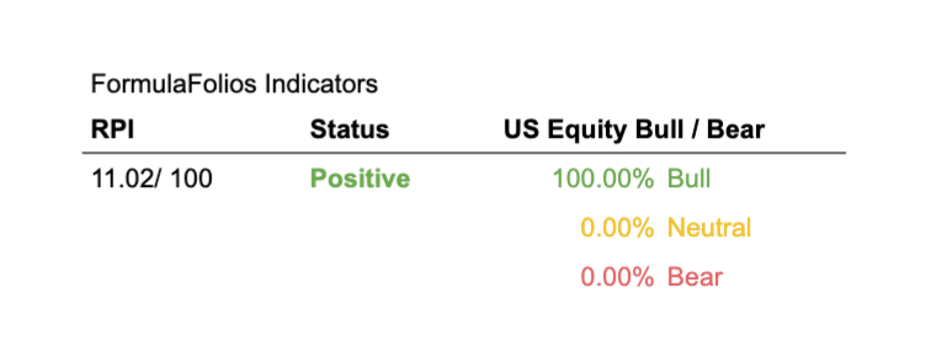Markets rose this week on mostly disappointing economic data. On the positive side, initial unemployment claims set another new pandemic era record low for the third consecutive week, beating analyst expectations. The biggest news of the week was the dramatic miss in expectations of non-farm payrolls. Consensus expectations were for hiring to come in at roughly 1 million for the month of April, but actual hiring tallied at just 266K. Markets reacted warmly to the news however, as analysts are now more confident that the Fed will not be adjusting monetary policy any time soon. Manufacturing and services PMI data also disappointed, with both readings declining and missing expectations. Overall, in spite of the week’s disappointing data readings, the economy remains well positioned to perform exceptionally in 2021 based on overall macroeconomic position. New COVID-19 infections moved substantially lower again this week, with 7 day moving averages decreasing by around 7K a day over the prior week. The most recent infection data puts the moving average below 45K new infections a day for the first time since early October.
Overseas, developed markets outperformed emerging markets. European indices were positive, with Japanese markets returning positive performance as well for the week. Improving prospects against the pandemic as well as improved prospects for economic recovery should continue to help lift markets globally over time.
Markets were positive this week as investors continue to assess the state of the global economy. While fears concerning global stability and health appear to be in decline, the recent volatility serves as a great reminder of why it is so important to remain committed to a long-term plan and maintain a well-diversified portfolio. When stocks were struggling to gain traction last month, other asset classes such as gold, REITs, and US Treasury bonds proved to be more stable. flashy news headlines can make it tempting to make knee-jerk decisions, but sticking to a strategy and maintaining a portfolio consistent with your goals and risk tolerance can lead to smoother returns and a better probability for long-term success.
Chart of the Week

After what appeared to be a trend of solid hiring progress for three consecutive months, April’s data came in well under expectations, resulting in a tick up in the unemployment rate. The disappointment caught economists by surprise, as most states are beginning to relax or outright remove economic restrictions.
Market Update
Equities
Broad market equity indices finished the week mixed, with major large cap indices outperforming small cap. Economic data has been mostly encouraging, but the global recovery has a long way to go to recover from COVID-19 lockdowns.
S&P sectors returned mixed results this week. Energy and materials outperformed, returning 8.89% and 5.86% respectively. Utilities and consumer discretionary underperformed, posting -1.12% and -1.17% respectively. Energy maintains its lead in 2021 with a 41.42% return.


Commodities
Oil rose this week as crude oil inventories dropped by more than expected. Energy markets have been highly volatile in the COVID era, but it appears that stability may be more of the norm given recent market fundamentals. Demand is still low compared to early 2020, but as vaccinations proliferate, lockdown restrictions in Europe as well as the U.S. should start to loosen, helping support recovery. On the supply side, operating oil rigs are still well under early 2020 numbers, but trending upwards. In addition to supply and demand, a volatile dollar is likely to have a large impact on commodity prices.
This week, a cyber attack targeting a large fuel pipeline on the east coast resulted in the shut down of the computer networks operating the flow of fuel. The company which owns the pipeline and U.S. authorities are working to restore the pipeline, but should the shutdown continue, oil and especially gasoline prices could be adversely affected.
Gold rose this week as the U.S. dollar weakened. Gold is a common “safe haven” asset, typically rising during times of market stress. Focus for gold has shifted again to include not just global macroeconomics surrounding COVID-19 damage and recovery efforts, but also inflation and its possible impact on U.S. dollar value.
Bonds
Yields on 10-year Treasuries fell this week from 1.6257 to 1.5771 while traditional bond indices rose. Treasury yield movements reflect general risk outlook, and tend to track overall investor sentiment. Recently, expected increases in future inflation risk have helped elevate yields. Treasury yields will continue to be a focus as analysts watch for signs of changing market conditions.
High-yield bonds rose slightly this week as spreads tightened. High-yield bonds are likely to remain more stable in the short to intermediate term as the Fed has adopted a remarkably accommodative monetary stance, vaccines continue to be administered at high rates, and major economic risk factors subside, likely helping stabilize volatility.

Lesson to Be Learned
“The desire to perform all the time is usually a barrier to performing over time.”
-Robert Olstein
FormulaFolios has two simple indicators we share that help you see how the economy is doing (we call this the Recession Probability Index, or RPI), as well as if the US Stock Market is strong (bull) or weak (bear).
In a nutshell, we want the RPI to be low on a scale of 1 to 100. For the US Equity Bull/Bear indicator, we want it to read at least 66.67% bullish. When those two things occur, our research shows market performance is typically stronger, with less volatility.
The Recession Probability Index (RPI) has a current reading of 11.02, forecasting a lower potential for an economic contraction (warning of recession risk). The Bull/Bear indicator is currently 100% bullish, meaning the indicator shows there is a slightly higher than average likelihood of stock market increases in the near term (within the next 18 months).

It can be easy to become distracted from our long-term goals and chase returns when markets are volatile and uncertain. It is because of the allure of these distractions that having a plan and remaining disciplined is mission critical for long term success. Focusing on the long-run can help minimize the negative impact emotions can have on your portfolio and increase your chances for success over time.
The Week Ahead
This week will see updated CPI numbers as well as retail sales. Both measurements are likely to have a substantial impact on markets, and will be helpful for determining whether the economy is still trending in the right direction.
More to come soon. Stay tuned.



